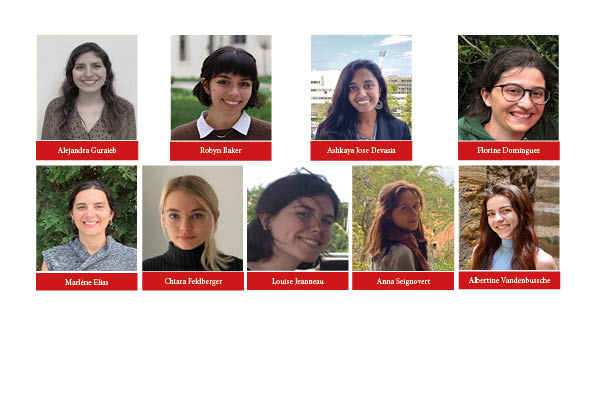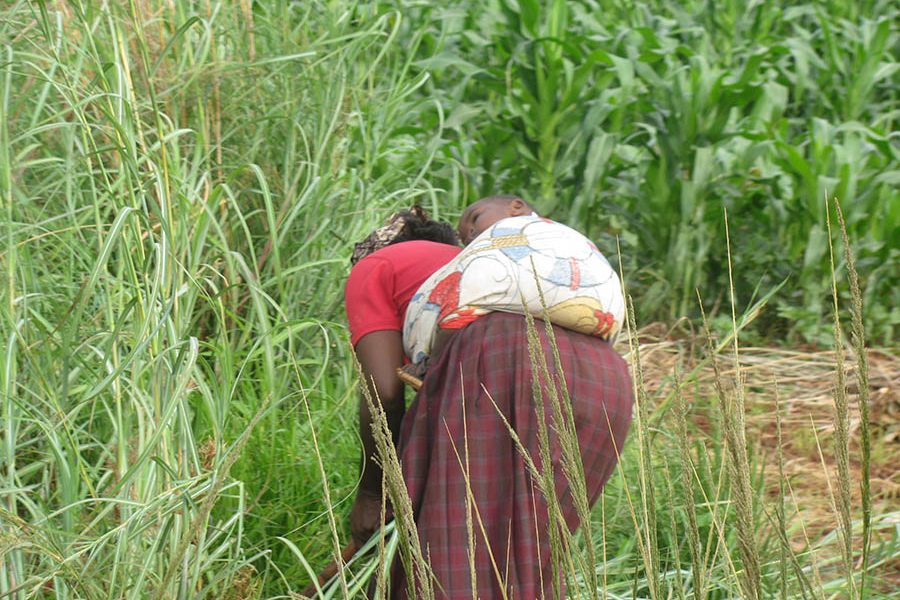
On the Spotlight: Investor-State Dispute Settlement Mechanisms and Climate Transition
3 May 2022
Why geoengineering to stay under 2 degrees Celsius should be stopped
11 July 2022“We need to challenge the system or we are reinforcing it”.
Marlène Elias
The fourth Chair and Students’ Roundtable was held on May 11, 2022. It was a virtual event. The topic was “Sustainable Food Systems and Gender”. We were delighted to welcome Marlène Elias (Alliance of Bioversity International and CIAT) as our guest expert.
Participants of the Roundtable were students Robyn Baker, Florine Dominguez, Chiara Feldberger, Louise Jeanneau, Akshaya Jose Devasia, Anna Seignovert and Albertine Vandenbussche, with Marlène Elias and Alejandra Guraieb (Research Assistant to the Chair).
* Our group makes the observation that all participants to the Roundtable were women even though the Roundtable was open to all.
Discussion Highlights:
- Food systems are anchored in a gendered system with structural gender inequalities. The task is immense whether in identifying inequalities, addressing them, empowering women, removing systemic cultural, institutional and spatial barriers, but also in giving women adequate access to services, resources and opportunities in the food systems sector.
- Gender equality and women’s empowerment are key to achieve greater food security and better nutrition.
- Gender issues are still considered as being an “extra” for a lot of projects (if considered) or misunderstood although women are key for food systems transition both in rural and urban areas, while being also the most vulnerable.
- A big challenge of supporting women in agriculture is that the system discriminates against them, therefore the idea of transformative change needs to address systemic reform. For example, making banking systems more woman-able as opposed to making women more bankable.
- Transformative change will only occur when you address formal [institutions] and informal structures [norms], sometimes it is more viable to influence behavior through advocacy.
- It is crucially important to identify one’s own value systems and biases and to recognize that if a system is not challenged, biases are reinforced.
- Discussing the inclusion of gender equality implies personal views. Discussing gender equality in food systems can cause emotional reactions from all stakeholders (farmers, NGO employees, policymakers…). It is therefore easy for stakeholders to be defensive or shut down when they are confronted with their biases. Accordingly, it is important to keep a diplomatic approach and frame our language when defending views on synergies between gender equality and food systems. It is also relevant to make allies.
- On research and gender, it is important to recognize that data systems tend to be biased and can create invisibilities. We always have to consider who framed the research questions and who answered the questions. During fieldwork, it is very important to be self-aware of one’s positionality in order to contribute to meaningful, equitable change.
- Development agencies are often caught amidst funding cycles. This can impact knowledge creation by prioritizing short term ‘headline’ gender outcomes instead of financing more long-term slow returns that understand and address structural and normative challenges within contexts that hinder the most marginalized from benefiting from interventions.
- Local change can create a ripple effect for a more gender-equal and nourished world. When the pace of global action disheartens us, let us not forget that immense change can begin at the local level, with our communities!
Students’ opinions on our Roundtable!
“This roundtable was a wonderful opportunity to talk and discuss about the links between gender and sustainable development and the issues related.”
“I found this roundtable extremely insightful, to hear from everyone’s experiences and perspectives on how to revamp the ins-and-outs of our food systems and its transition towards sustainability and resilience in a way that places women and gender minorities at the center of this impetus.”



